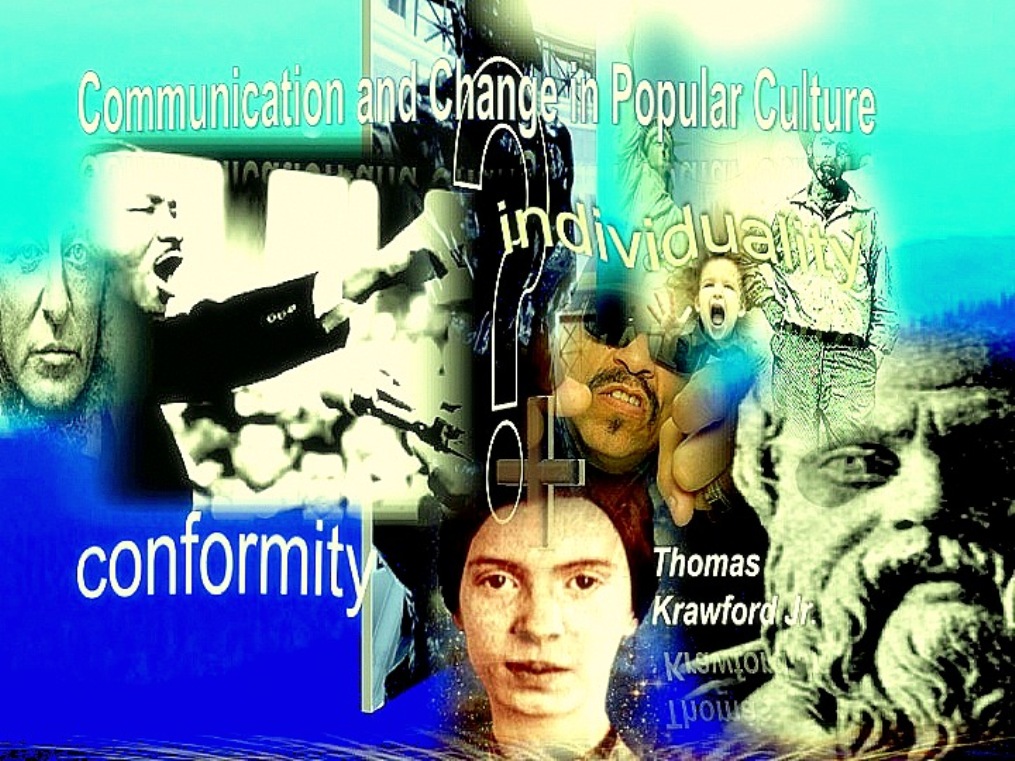III.
In our discussion, we left off with an uncommon definition of error. To clarify: error is that element of joint, direct or inverse impression in occurrence integrated from its greatest common general perceived quantity to its least common individual capacity regardless of our perception. I am ahead a little bit: for that I apologize. But the claim in this previous statement is not that far from what we began our discussion with earlier.
Namely, that error is that compositional element inherent in any system of thought and behavior which exists in part as a representative of unknown capacity. In terms of the subject as a necessary constituent of human thought and behavior, it remains impression that interconnects inherent known and unknown capacity. At this point, however, we are not concerned with quantity.
Our only concern at at this point is that the Subject as necessary implies a natural instinctive yet systemic Inherency in the occurrence of impression as capacity of which error is always a part. Whereas Object, constructed from that natural systemicity, describes the constructed systemacality of knowledge as a variable condition of expression, integrated in terms of quantity of which perspective remains only one probable outcome, and unfortunately, not always as necessary. Thus, the question of integration remains our main concern.
The Rules of Constancy of Occurrence.
When we talk about integration of Subject and Object as well as Subject or Object, we are in effect talking about experience, particularly since for our purposes, we are equating Subject to thought and Object to behavior. We have at our disposal the concept of "system."
Here we are defining system as that overall quantity and specific capacity of joint, direct or inverse interaction between similar compositional elements. This broad definition is meant to describe, in the most general terms, organic and inorganic, human and animal, defined and nondefined exchanges of hierarchical condition. It remains our main contention that these hierarchical exchanges are fundamentally binary: the Subject being that capacitry of necessary Inherency while the Object is that probable quantity constructed from the necessary Inherency to which it most closely corresponds.
For the purposes of this argument, we will restrict our discussion specifically to human thought and behavior. Afterwards, we will address special implications of the theory once we have successfully made our way through these first three or four sections of our argument.
The Rules of Constancy of Occurrence are the basic descriptive Rules defining thought and behavior as interdependent root conditions of specific quantity and capacity. Moreover, the Rules of Constancy of Occurrence stipulate that quantity and capacity integrate along three possible ranges of interrelation and that those ranges will always occur as either discrete and or continuous coefficients relative to general and specific boundary conditions.
In other words, on the one hand we have general and specific boundary conditions of Greatest Common General Circumstance of Subject or Object Occurrence and the Least Common Individual Result of Subject and Object Integration. We have more or less established this implication. On the other hand, we have joint, direct or inverse possible interrelations as variable ranges of establishment, substantiation and transformation common in all systems. Let me explain why.
First, all systems resist change. Whether we invent them from a systemicality of probable knowledge or inherit them due to a systemicity of necessary instinct, the boundaries of conjugation, symmetricality and dependent variable
are fixed in much the same fashion as a hyperbola characterizes discrete and continuous multiplicity.
Here the words "discrete" and "continuous" allow us to operate from the precedent that as a system of interaction and exchange, Subject as thought and Object as behavior are quantifiable when defined in terms of Subject as capacity and Object as quantity. Furthermore, in integration of two root elements of condition, we can use the same root transformations we used to establish our understanding of Subject and Object.
So, in terms of Constancy of Occurrence either in joint, direct or inverse relation to the other, we can use the understanding given us by extrapolating the operations of conjugation, symmetricality and dependent variable we used to describe general and specific boundaries of condition.
So, what we are saying here is that, for our purposes, The Greatest Common General Circumstance of Subject or Object Occurrence as one boundary describes the condition of Object quantity as probably continuous. The Least Common Individual Result of Subject and Object Integration is a boundary that describes capacity as necessary and discrete. From this formulation, our previous contention is clear enough: all systems, especially all of us, resist change.
That which we call Subject in part exists in and of itself as a resistance to definition. That resistance thus echoes throughout the hierarchical necessary and or probable integration of possible capacity and quantity conjugation.
Symmetricality and dependency in the variable establishment of these elements of condition, is thus proportional as either substantiation and or transformational Occurrence Constancy in overall terms, of either general or specific experience.
Let's translate our hyperbola example we used earlier: let's call it an hourglass for the purposes of clarification.
In the hourglass, we have two closed parabolic forms juxtaposed by a common vertice through which sand pours. The direction of the sand of course depends on which end we place on top of the other, but also whether or not we place the hourglass on its side. Thus we have three possible positions: one that resists change, and two where change is proportional to the condition of the other.
The hourglass also resits change. On the one hand, obviously it's an hourglass: we can safely assume that it will not change. This resistance to change is also a direct interrelation of the hourglass to its resistance and subsequent identity establishment.
Our hourglass also teaches us that for any given system, there exists a narrow range of inherent elements upon which substantiating identity depends on the joint integration of capacity and quantity. In the case of our hourglass, if we rule out breakage or sitting it on its side, we see quite clearly that the narrow range upon which this particular closed system exists in terms of both form and function is the vertice shared by two opposing yet symmetrical forms.
Thus, our argument is that all systems are like the hourglass in so far that all systems have inherent within their structure, a sub structure that resists change yet if activated through establishment, substantiation or transformation, will alter the course of the entire system. This fact is, in and of itself another echo of the necessity of error at one end of what we have argued, is the root of perspective and illusion. This argument also leads us back to our previous claim that all systems of thought and behavior resist change and yet inevitably will change due to the inherency of a necessary error in perspective and illusion. Thus we can also argue that all systems of thought and behavior are at once as discrete as they are continuous.
All systems of thought and behavior are of course heuristic in so far that each is an inverse, reorganized transformation of a prior system of similar or corresponding quantity and capacity, perspective and illusion, circumstance and or result. This makes perfect sense because of all we have said about the Constancy of Occurrence in specific and general, subject and object condition.
In our hourglass model, let the sand in either end of the overall form, represent one particular system. And while we're at it: the arrangement of every grain sand in the bottom form for example, represents every possible joint and direct subject and or object interrelation. Now, let's turn the hourglass over, placing the bottom on the top.
The transformation that now takes place as the sand from one end of our hourglass flows into the other, represents what happens when one system ends and another begins. Before we go any further, the reason why this transformation represents an inversion and not a conversion of the prior system, because converse implies a relationship between antecedent and consequent in which both are part of the same system. Inverse, on the other hand, means antecedent and consequent are associative but independent of each other.
In our hourglass, the over all peripheral shape is of course hyperbolic, but the system of sand in one specific shape over or under the other remains a constantly shifting inversion of the system of sand that came before it. This is of course contingent on our understanding that no pattern of sand in either specific form of the overall universal form will repeat if the number of those shifting grains of sand meets or exceeds a specific number relative to the volume common to both ends.
However, the fact that when one end is empty the other will be full as long as the hour glass stands on one end doesn't speak to the joint, direct and inverse arrangement of the shifting inverse systems of grains of sand. Converse only gives us a two dimensional description of logical implication. Inverse allows for the probability of much more than two dimensions in hierarchical, yet binary organization.
In other words, for our purposes, we are much more precise when we describe the relationship between the two joined systems bound by the common form of the hourglass as inverse and associative, rather than converse and by direct implication, distributive.
Hence, we have the heuristic quality of this aspect of our theory. Our guide to follow when we decide on a course of deliberation or plan of action or method of system maintenance must root itself in the shifting pragmatics of inherent capacity as Subject, probable quantity as Object and the joint, direct or inverse Constancy of Occurrence of either to its other: relative to the Greatest Common General Circumstance of Subject or Object Instance to the Least Common Individual Result of Subject and Object Integration.
That's more than enough for now. Next time we will discuss a few of the beginning principles of Meta and Counter Interactionism: a twin method system by which we will better understand, how our theory merely describes general and natural human phenomena while resolving current conflicts and inconsistencies in much of how we view human thought and behavior. We will briefly review Blumer's Interaction Theory and Postrado's Interrelation Theory and take it from there.
Thanks
Progress in Argentina?
-
Monthly inflation in Argentina could fall below 10% in April, a sign that
the government’s policies are working, President Javier Milei said Sunday
in a ...
3 hours ago


+of+IMG_9264.jpg)



